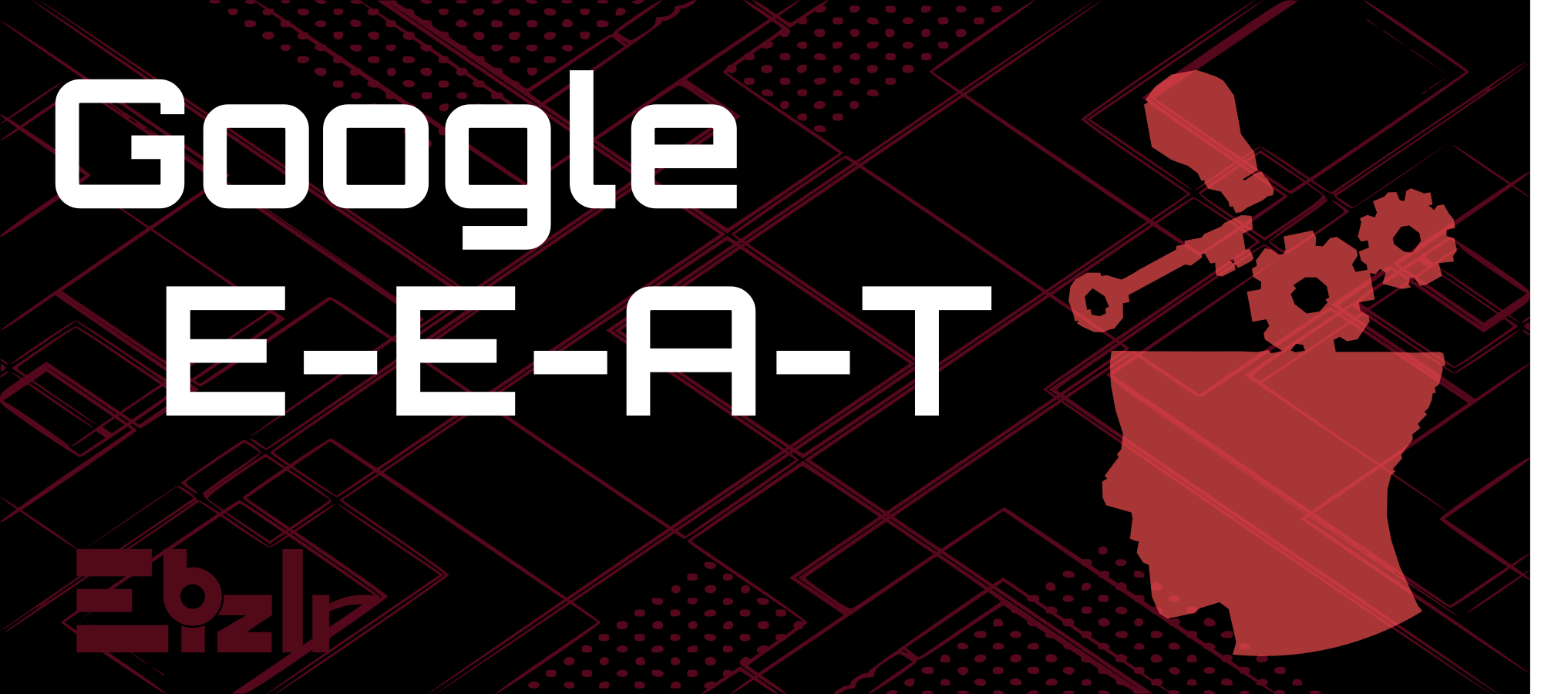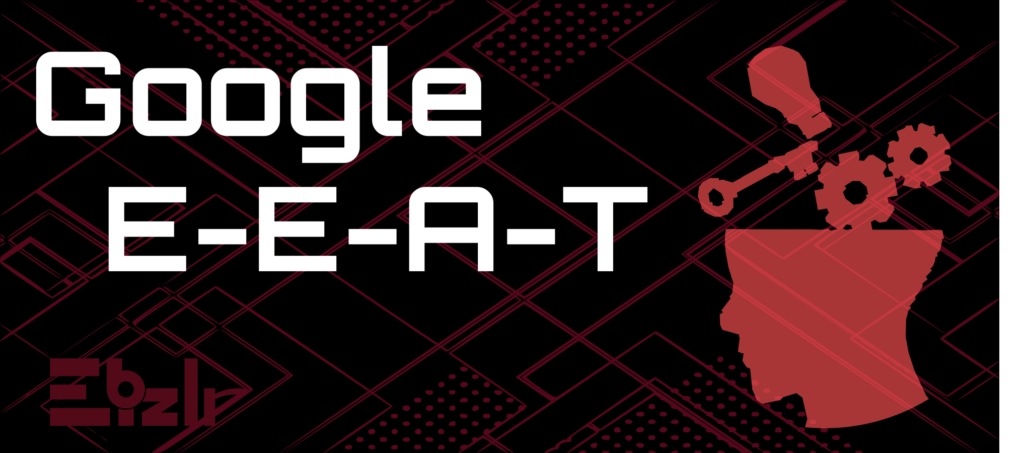E-E-A-T Google: 4 Tactics to Apply E-E-A-T SEO

E-E-A-T stands for Experience – Expertise – Authoritativeness – Trustworthiness.
E-E-A-T is important because it’s part of Google’s search rater guidelines and assesses the originality and helpfulness of the content.
Also known as Google’s E-E-A-T guidelines.
Having knowledge of it and curating your content to build E-E-A-T will positively impact your SEO.
No, E-E-A-T is not a direct ranking factor. As it cannot be measured directly.
But, it focuses on determining the quality and expertise of the content as well as the expertise and trustworthiness of the authors.
This is done in countless ways that can’t be measured on a scale.
This is further reinforced by Danny Sullivan who tweeted the following: 
The Google E-E-A-T Guide

Initially, this term was just E-A-T, without the extra E for Experience. With Google’s December 2022 update, the E was added.
In this article, we will cover how you can optimize your blog post content for each aspect of E-E-A-T. Keep reading.
How to do E-E-A-T SEO
We’ll take an in-depth look at each of the 4 terms that make up E-E-A-T: Experience, Expertise, Authority, and Trust.
And, we’ll also provide how you can apply these 4 terms in your writing to improve your content’s overall E-E-A-T SEO. Sounds good? Let’s go.
1. Apply Experience [E-e-a-t]
First, let’s discuss what the Experience in E-E-A-T is based on and how this affects affiliate marketing.
Experience, a new addition to the search rater guidelines, revolves around whether the content writer has actual experience on the topic they are writing.
For example, if you are writing a blog post on ‘the 10 cheapest laptops’, Google wants proof of whether you have used these 10 laptops in real life and based your decision on that.
Or have you simply accumulated information from other sources to create a review and comparison [Ahem… affiliate marketers]?
How Google’s latest update to E-A-T affects Affiliate Marketing
This latest update is mostly aimed toward affiliate marketing.
Affiliate marketing is a method to make money by referring people to a specific product.
The original concept of affiliate marketing was to refer to products you have personally used.
But, over time, with the excess information out there, affiliate marketers can simply gather information from other sources on experiences users have had with the product.
Simply put, they promote products and services through content built around other users’ experiences.
Which, isn’t technically wrong. But, the problem is, there are millions of people doing this.
So, if one person had an experience with the product, there are thousands of affiliate marketers using that person’s experience as content to be an affiliate for that product.
Which creates a ton of duplicate and poor quality content. Google is fighting this with their E-E-A-T update.
So, if you’re promoting products through the content you’ve gathered from other sources [And don’t have any of your own personal experience], your content quality will drop in Google’s eyes.
How to increase Experience in E-E-A-T?
To increase experience [E in E-E-A-T], you need to build firsthand experience with the topic you’re writing on.
For example, if you’re writing on ‘how to start a blog’, you should have started a blog yourself.
If you’re promoting a vacuum cleaner, you should have used that vacuum cleaner yourself.
When you do it yourself, you learn a lot more than what you learn from other people’s experiences, and so you’re able to provide more helpful content.
2. Apply Expertise [e-E-a-t]
Expertise, the original E in E-A-T, focuses on the level of expertise the writer has on the topic. Expertise is based on how much the writer knows about the topic. Expertise is rated for YMYL content.
YMYL content stands for Your Money Your Life. YMYL s a term often used when discussing E-E-A-T. YMYL content is content that affects your life, your health, or your financial position.
Examples of YMYL content:
- News and current events [International events, business, politics, science, and technology related]
- Civics, government, law
- Finance [investments, taxes, retirement planning, loans, banking, or insurance]
- Shopping [All products and services]
- Health and safety [health and medical issues, including hospitals and pharmacies, or drugs or any activities that have a direct impact on a person’s health and safety]
- People [Content on a person’s ethnicity, race, nationality, religion, age or disability, and gender]
Importance of expertise in E-E-A-T
So content that is built for YMYL topics needs to come from a reputable source or an expert.
For example, would you want to learn about surgery from a blogger who’s a housewife in real life, or from an actual, real life surgeon?
Would you want to learn about taxes from a 15 year old who hasn’t done a job in his life, or from a CPA [Chartered Professional Accountant]?
Google determines whether you are an expert or not based on background and education.
Specifically, bachelor’s degrees, master’s degrees, and diplomas. Or some legitimate documentation proving your expertise on the topic like licenses.
It searches for such documentation on your social profiles, academic directories, etc.
How to increase Expertise in E-E-A-T
To increase expertise on a topic, you need to build a legitimate background on the topic. If you have one, great!
What you must do is make it evident to Google that you’re an expert by having your academic documents and licenses on your blog.
Place this documentation on your social profiles. In your author bio, link to these documents and specify your degrees and licenses. Place them in your footer and about page [Check out 72 examples of footers to get inspiration from]
But, what if you don’t hold a legitimate background?
If so, it’s best to stay away from YMYL topics because you shouldn’t give advice on financial and health matters when you’re not an expert [There is a way out, coming up].
On the bright side, not all content is considered YMYL content.
The best way to determine whether the content is YMYL is by asking the question, “Is there a person who can hold a legitimate degree or license to speak on this topic?”.
For example, if the content is based on heart surgery, there are people who hold medical degrees and licenses that can speak on this topic, and they’re experts.
And, therefore, the topic of heart surgery is a YMYL topic.
If you don’t hold such documentation, speak with someone who does, and quote/ link them in your content.
For example, if your topic is diabetes, find doctors or other practitioners who have expertise on the topic.
Most experts write reports and create documents that you can find online through platforms like Google Scholar.
You can even take quotes from books, thesis reports, PowerPoint presentations, PDFs, etc.
Simply take quotes from these resources and link them. You can even take it a step further and have them peer review it.
Showcasing expertise is difficult, but is required if you’re trying to give someone advice on topics that affect their financial life and health.
Keep in mind, this is a search rating guideline and affects your capability to rank.
But, it’s not a direct ranking factor. So, you can still rank high even if you’re not the best expert.
But, if you’re competing with someone who has better expertise than you, they’ll outrank you [If expertise is the only difference between you and them from an SEO standpoint].
3. Apply Authority [e-e-A-t]
Authority is the power and reaches you have over a certain topic.
Power is based on how much content you have for that topic and whether it’s quality content.
Power is entirely dependent on the concept of topical authority.
Check out our guide on how to become a topical authority by strategically creating blog post content.
Reach is based on how many blogs know of you and consider you a powerful authority.
Reach depends entirely on backlinks.
To build backlinks, check out our guide on the 9 link building methods you can start implementing today.
How to increase Authority in E-E-A-T
Authority can be increased by improving the amount of content you have on that topic. Simply put, if your topic is on cars, have you answered all car related questions?
Every single one of them? Independent of whether they get 10 Million searches or 10 searches?
The more content you display around a topic, the more expertise you build on it [From Google’s eyes].
Now, you don’t have to be a topical expert to start creating content on the topic.
You can start researching and learning about the topic from the content that’s already out there [Online resources, blog posts, documents, books, experts, etc]. This can be done if you level up your keyword research capabilities [Check out our keyword research guide].
You can even learn from your competition by conducting a blog competitor analysis.
As you learn, you can create the content.
Reusing content that’s already out there with a unique touch
And, you want to then provide that content in a different format that is unique [If it’s already found online]. Here are examples of displaying content in different formats:
- Having a different structure: Suppose there is already a long blog post covering 10 subtopics for a given topic, you can create 10 separate posts where you dive deeply into each subtopic. That is considered unique.
- Having different multimedia: For example, if you originally learned the topic through text based content, you can provide it in a video based format alongside text format.
- Having more examples: If you learnt a topic through content that just gave explanations, You could provide that content in the same manner along with a bunch of examples.
Remember, you don’t need to be 100% unique [It’s not possible], you just need to have some aspect of uniqueness in the content. You can learn more from our in depth guide on repurposing content.
4. Apply Trust [e-e-a-T]
Trustworthiness is the center of E-E-A-T because Google considers it to be the most valuable factor among the four factors. It doesn’t matter if a blog has Experience, Expertise, and Authority if it’s not trustworthy.
How to increase Trust in E-E-A-T
Trust is built in several manners:
- Is there a good about page, where the blog owners speak about themselves? [Check out our blog setup guide to learn more]
- Is there an author bio?
- Do the blog authors have firsthand experience with the topics they speak about?
- If the blog promotes products or services, does it provide a ton of reviews and information about that product or service? [Based on the 70 – 30 rule]
- Do the blog authors have some level of expertise if they write about YMYL content? [It doesn’t make them untrustworthy just because they’re not the best expert]
There are a ton of factors that all work together to build your blog’s trust in Google’s eyes. All aspects of White Hat SEO increase trust.
Guidelines focusing on improving content quality also increase trust. All 4 aspects of E-E-A-T play a role in ranking on the SERPs and should be considered when creating content.
Importance of E-E-A-T SEO
E-E-A-T is one of Google’s Search Quality Rater guidelines that focuses specifically on factors that determine whether the content is written by a human.
In fact, this update is a direct weapon that will be used to fight AI-written content for years to come. Experience determines whether your content is based on whether you’ve actually used it.
AI can’t provide an experience. They may provide a false experience. But, they won’t be able to get specific. But, you can. You need to get really specific in your writing.
For example, if you’re writing about a fishing rod, get really specific on the materials it’s made of, and how it feels.
Provide different experiences you’ve had with it. Talk about the different fish it can catch. Or about the times it may fail. Talk about the best situations to use it in.
AI content won’t be able to get this specific without making things up [And Google knows when you’re making things up].
The same applies to the other 3 elements of E-E-A-T. With AI content becoming more dominant, the only way to tell Google that your content was written by you [A human], is to apply E-E-A-T as much as possible.
Learn more about how you can write great content [That only humans can write] for our guide on How to write a blog post.
How to improve E-E-A-T SEO [8 Steps]
Here is the procedure to improve your blog’s E-E-A-T SEO:
- Build high quality backlinks
Backlinks act as votes given to your blog by other blogs. These votes tell Google that another blog supports you and trusts your content’s value. The more backlinks you gather [From high quality sources], the more you’ll grow your blog’s trust factor For E-E-A-T SEO.
- Build topical authority
Topical authority is how well you’ve covered a topic. Whether you’ve answered every question on that topic. The more in depth you cover a topic, the greater the authority you are on that topic. This is how you grow your authority for E-E-A-T SEO
- Get mentioned by trusted sources
Simply getting mentioned by other sources also makes a difference [When you get mentioned without being linked to]. Google can see how often your blog was mentioned even if it wasn’t linked. This can easily be done through guest posting & is one of the main benefits of guest posting [Learn more from our guide on guest posting].
- Keep content fresh
Keeping content fresh consistently tells Google you care about your users and want to ensure they read up-to-date content. Content freshness is one of the 7 ranking factors we discuss in our blog post SEO guide.
- Get more reviews
Reviews also act as votes and help build trust in E-E-A-T SEO.
- Showcase your credentials
Credentials help Google determine your background and whether you’re a real person. This helps build expertise and trust for E-E-A-T SEO.
- Display your contact details
Contact details help users know how to reach you. And it gives Google more proof that you’re human [And not AI]. This increases trust.
- Be socially present
Be present on as many online platforms as possible. Put your blog on all social media platforms, and be active on them [Just be active by posting every now and then; no need to build a following on all platforms]. It increases your credibility. And you can get more traffic in the long run [Social media is ONE of the 13 methods we discuss in our guide to increasing blog traffic]

